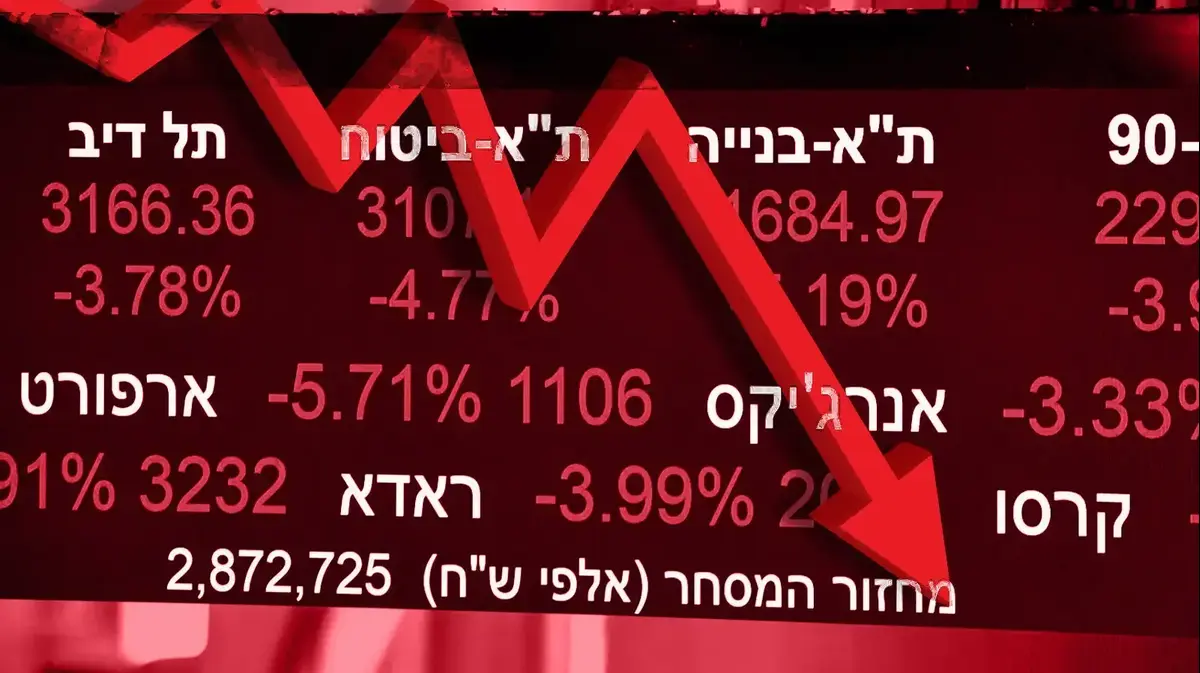On video: Fall in Katsrin after the Iranian attack, April 14, 2024/documentation on social networks according to Article 27a of the Copyright Law, photo: MM Katsrin
The stock market closed today with slight price increases, with TA 35 and TA 125 rising by about 0.3%.
Despite the sense of relief experienced by the public this morning and the end of the Iranian attack with a spectacular Israeli repulse, Bank Hapoalim economists estimate that the long-term impact on the markets is likely to be negative.
"The markets will have to digest the events and the future scenarios and the new equilibrium point will become clear in the coming days," says the director of the economic department at Bank Hapoalim, Victor Behar, saying that "in the eyes of foreign investors, the negative scenarios will probably be given a high weight, and the overall effect on the markets in the medium term In our estimation, it is expected to be negative, even if the event does not continue to deteriorate."
Regarding the situation as a whole, Behar says that "the geopolitical risk and the fiscal risk of the State of Israel are increasing in the short term, and this means that the chances of lowering the country's credit rating have increased. The last night is also bad news for defense spending. The cost of each such day is probably several billion shekels, and the increase in The confrontation with Iran will probably justify a further increase in defense spending in the coming years.
"The longer the deficit turns out to be higher than planned, and the longer the fighting in Gaza continues, the higher the chance of a debt rating.
" Oil prices have already risen to the level of $90, even before the Iranian missile attack on Israel, and the rising trend may increase."
And what will happen to the shekel exchange rate? "The exchange rate of the shekel against the dollar fell in the past week to the level of 3.77 shekels per dollar. The devaluation against the dollar was also affected by the strengthening of the dollar in the world. Given that the results of the attack are not relatively serious, and the devaluation already reflected the risk of reaction from Iran, the trend in the short term is less clear. At the same time , the budget deficit and a high chance of a downgrade may continue to weaken the shekel in the coming weeks."
Bahar predicts that inflation is expected to be higher than expected and that the chance of interest rate drops has decreased. "It is possible that airlines will not renew the routes to Israel in the near future, which will determine the high flight prices. Inflation is currently priced in the derivatives market at a level of about 2.8% per year for the next two years. We expect higher inflation in the first year, and also believe that the risks are biased towards higher inflation." .
Those who will wait for a consistent interest rate drop will probably be disappointed: "The Bank of Israel left the interest rate unchanged at 4.5% last week, this in view of the high risks that may affect inflation. The market's expectations for an interest rate cut have dropped significantly, and they now represent one interest rate cut until the end of the year, An estimate that seems reasonable to us. The Bank of Israel's research division still estimates that a year from today the interest rate will be 3.75%."
And what did the stock exchanges in the world do? "In the last week, price decreases were recorded in most of the world's stock markets. In the US, the S&P500 index fell by 1.6%, the Nasdaq index fell by about 0.5%, and the Dow Jones index fell by 2.4%. In Europe, the Eurostox 50 index fell by 1.2% and the DAX index in Germany fell by 1.4%, in Asia the Nikkei index in Japan rose by 1.4% and in China the CSI300 index fell by 2.6% last week."

